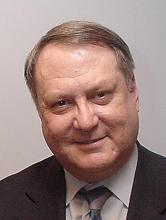 By George Kane
By George Kane
November 19th marked the 150th anniversary of Abraham Lincoln’s famous Gettysburg Address. To commemorate the occasion, Ken Burns filmed 61 political and cultural leaders, including all living presidents, reading the speech. From these videos he put together a pastiche, taking a few words from each reading. The film of President Obama’s full reading sparked conservative outrage that Obama omitted “under God” in the line “that the nation shall, under God, have a new birth of freedom,” although it was not used in the Burns collage.
.The omission of “under God” in Obama’s reading became one of the top stories on conservative websites like the Drudge Report, The Daily Caller, and the National Review Online. They were sure that Obama was revealing hostility toward Christianity and deliberately falsifying history. Rush Limbaugh said that Obama did it just to be “in the face” of conservatives, to provoke an angry response. Chris Plante, another conservative radio host, speculated that President Obama would not have removed the phrase “under Allah.” “How stupid are these people?” Plante demanded, speaking of Obama’s advisors. “How dishonest, how fundamentally corrupt, morally and otherwise corrupt, are these people?”
Burns attempted to resolved the issue by explaining that he had requested the president to read from the Nicolay version, Lincoln’s first draft. That text did not include the words “under God.” Neither did Lincoln’s second draft, known as the Hay Copy. Lincoln wrote this version either on the morning of the address, or afterward on the train ride back to Washington. These are the only two versions ever found from which Lincoln might have read at the Gettysburg battlefield. There were several newspaper reporters who were transcribing Lincoln’s oration live, and they all included “under God.” Perhaps the reporters compared their notes before submitting their reports to the newspapers, and came up with a collective error. More likely, Lincoln improvised when delivering the speech, and diverged from his script.
Some time later, Lincoln responded to requests for the text of the speech, and wrote the Everett, Bancroft, and Bliss copies. These all included the words “under God,” indicating that Lincoln approved of the insertion whether or not he actually spoke the words at Gettysburg.
• • •
Another Lincoln-related quote is also the subject of partisan dispute. John Hay, Lincoln’s private secretary, recorded that when attending physician Charles Sabin Taft declared that Lincoln was dead, Edwin Stanton, the Secretary of War, proclaimed “Now he belongs to the ages.” That phrase has been accepted by most historians, although Dr. Taft recalled Stanton’s wording as “He now belongs to the ages.”
The dispute stems from an article written in 1927 by Corporal James Tanner, the stenographer recruited to take depositions from witnesses of the assassination. Tanner recalled Stanton’s words as “He belongs to the angels now.”
It seems odd that anyone would accept such a detail that was not recorded until 62 years after the event. Tanner submitted his article in long hand, so it is possible that “angels” was an error in transcription. Other records of Lincoln’s deathbed scene do not record that Tanner was even present. Yet conservative Christians have argued that the “angels” version must be taken as authoritative. After all, they assert, Stanton was deeply religious; but they take it as axiomatic that prior to the modern era, everyone in government was a committed Christian. They also contend that the meaning of “belongs to the angels” is clear, while “belongs to the ages” is somehow muddled and incomprehensible.
• • •
In Pennsylvania, Republican State Representative Rick Saccone introduced House Bill 1728 calling for the motto of the United States, In God We Trust, to be displayed in all school buildings. In October, the bill cleared the Education Committee by a 14 to 9 vote. The bill, however, will apparently die because the Republican majority has not scheduled a vote by the House in this session’s waning days. Saccone has flaunted a religious agenda throughout his legislative career. Last year he introduced a bill declaring 2012 to be The Year of the Bible.

